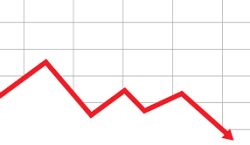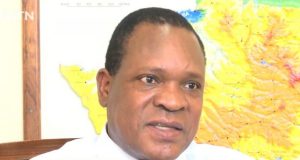

AS this year’s summer agricultural season takes off amid high optimism stemming from improved rainfall forecasts, preparations have suffered a major setback due to seed shortages for a number of key strategic crops.
This comes as the government wants to capitalise on the favourable rainfall forecast for this year to enhance agricultural productivity and eradicate food poverty across the country.
The revelations came at the 2024-25 Summer Agricultural Season launch yesterday organised by the Zimbabwe Agricultural Society in collaboration with our sister publication, The Financial Gazette, and sponsored by Ecobank Zimbabwe – which brought together stakeholders across the agricultural value chain to discuss the state of preparedness.
Speaking at the launch, Zimbabwe Seed Association chairman John Makoni, described the country’s seed preparedness as “somewhat mixed” with adequate supply in the staple crop-maize while some crops face “serious shortages.”

Agriculture minister Anxious Masuka
Seed shortages are mainly for hybrid sorghum and sunflower, certified seed for pearl millets, soya bean, ground nut, round nuts and sesame while maize, cotton and tobacco seeds are in abundance.
“In terms of preparedness, yes, we are ready but we have some areas we have excess and others we don’t have enough. If we look at maize, the country requires 45 000 metric tonnes and we have 54 000 metric tonnes, so we have an excess of maize,” he said.
“In terms of small grains we have a serious shortage, we require 4 000 tonnes, but we only have 2 700 tonnes. Pearl millet we also have a serious shortage. We require 1 500 tonnes and only have 75 tonnes. Finger millet we require 138 tonnes, we only have 102 tonnes. In terms of soya bean we require 7 700 and we only have 3 756 tonnes. Sugar beans require 6 000 tonnes we have got 2 391 tonnes, cotton we require 6 750 tonnes and we have 9 300 tonnes, we have excess there, and tobacco have excess again.”
The development would now cast doubt over earlier projections of brighter prospects for the current summer farming season.
Furthermore, the shortage will have a major impact on the small grains’ subsector, which is more resilient to the whims of climate change and is being led by the government to increase community resilience to droughts.
According to Makoni, the country has the option to import from neighboring countries such as Zambia and South Africa to cover the deficit but the current liquidity squeeze in the financial sector presented a major hurdle for most seed producers.
In contrast, the country has adequate fertilizer in stock to meet national requirements.
“We pretty much have all varieties of fertilisers available and we can assure you that we have adequate to meet the national requirements,” Fertiliser Manufacturers Association chairman James Chigwende told stakeholders.
Agriculture minister Anxious Masuka, who was guest of honour at the launch, painted a more positive picture despite these challenges, reaffirming a harvest of 2,7 million metric tonnes of maize, the country’s staple crop, from the current farming season.
“Last year we had a 72 percent reduction in cereal production due to drought and already we know we will have improved rainfall this year hence we are on course to increase our production.
“As of this morning, we have 10,2 million pfumvudza plots already planted which will help us meet our targets for this year of 2,7 million metric tonnes, up from last year’s 635 000 metric tonnes.
“We anticipate traditional grains to reach 575 000 metric tonnes from this current farming season,” Masuka added, who underscored the significance of the agriculture sector to the overall growth of the economy.
He said the agriculture sector will grow by 12,5 percent in 2025 uplifting the economy to grow in the region of around six percent
Already the country has harvested a record 518 502 tonnes of wheat from 106 238 hectares, as of November 1 2024, and the process continues. This year, a total of 119 594ha were put under winter wheat compared to 91 000ha in 2023.
“With the launch of the summer agricultural season, we applaud this initiative as it will assist us to deliberate on how best to strengthen collaboration for the enhancement of our productivity. We want to create food security and sovereignty.
“We can only achieve this through delinking rainfall from production. We want to develop 496 000 hectares of land under irrigation and for this current year 217 000 hectares have already been developed and 90 000 is available for cereal production,” Masuka said.
In the spirit of collaboration which dovetailed with the launch’s theme-Zim Agriculture: Forward Together, Grain Marketing Board (GMB) chief executive Edson Badarai said the company was ready to provide secure warehouse facilities for this farming season’ s harvest.
“We are building seven more silos above the 12 that we already have which will see us build capacity to accommodate 1,5 million metric tonnes of grain once construction work is finished,” said Badarai.
The government has committed to avail US$177 million for the construction of seven modern silos.
In addition to private sector players in the grain storage space, the country will have capacity to store a cumulative 2,5 million metric tonnes of grain.
Ecobank transactional service group head Michael Dengwani underlined the importance of collaboration within the agriculture value to attain food security national targets.
“Through collaboration we can go far.
We already have a partnership with Old Mutual that seeks to assist farmers with crop insurance in the face of climate threats to agriculture,” said Dengwani.The need for a coordinated, multi-sectoral approach to agriculture was brought to light by President Emmerson Mnangagwa’s 2020 introduction of the Agriculture and Food Systems Transformation Strategy.
By 2025, the plan hopes to turn the industry into a US$7,2 billion business that accounts for 20 percent of gross domestic product. By Kudzanai Gerede
Companies and Markets Editor